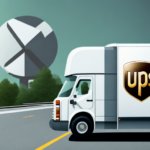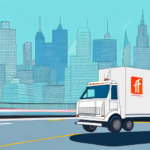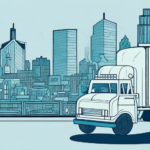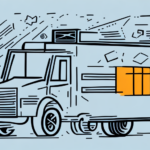Understanding Last Mile Delivery
Last mile delivery is a pivotal segment of the supply chain, encompassing the transportation of goods from a warehouse or distribution center to the final destination, whether it be a home or business. With the exponential growth of e-commerce, the significance of last mile delivery has surged, making it a critical factor in customer satisfaction and business success.
Definition and Scope
Last mile delivery refers to the final leg of the delivery process, where packages are moved from a local distribution hub to the end user. This stage is often the most costly and time-consuming part of the supply chain, accounting for up to 53% of the total shipping cost (2023 eMarketer report, over 70% of online shoppers consider delivery speed a key factor in their purchasing decisions.
Impact on Customer Satisfaction
Timely deliveries enhance customer satisfaction, while delays or complications can lead to negative reviews and lost business. E-commerce giants like Amazon have set high standards with initiatives like same-day delivery and extensive tracking capabilities, pushing other businesses to elevate their last mile delivery services.
Cost Implications
Efficient last mile delivery can also lead to significant cost savings for e-commerce businesses. By optimizing delivery routes and utilizing local delivery partners, companies can reduce transportation costs and improve overall profitability. However, the complexity and variability of last mile logistics often make it the most expensive part of the shipping process.
Key Challenges in Last Mile Delivery
Despite its importance, last mile delivery presents several challenges that businesses must navigate to ensure efficient operations.
Traffic Congestion and Delivery Delays
Urban areas are particularly susceptible to traffic congestion, which can cause significant delays in delivery times. To address this, companies are exploring alternative delivery methods such as electric bikes and scooters, which can maneuver through traffic more effectively.
Package Theft and Security
With the rise in online shopping, package theft has become a prevalent issue, especially in densely populated areas. This not only leads to financial losses for customers but also tarnishes the reputation of delivery companies. Solutions like smart lockers, secure delivery boxes, and enhanced tracking systems are being implemented to combat this problem.
Sustainability Concerns
Environmental sustainability is becoming increasingly important to consumers. The use of traditional delivery vehicles contributes to carbon emissions, prompting companies to adopt greener alternatives. Electric vehicles, cargo bicycles, and optimized delivery routes are some strategies being employed to reduce the environmental impact of last mile delivery.
Technological Innovations in Last Mile Delivery
Technology is a driving force behind the transformation of last mile delivery, offering solutions to many of the challenges faced.
Autonomous Vehicles
Autonomous delivery vehicles are revolutionizing last mile logistics by reducing the need for human drivers and lowering operational costs. Companies like Tesla and Nuro are at the forefront, testing self-driving cars and robots that can navigate urban environments to deliver packages efficiently.
Drones
Drones offer a promising alternative for delivering packages, especially in remote or hard-to-reach areas. They can bypass traffic and significantly reduce delivery times. Amazon's Prime Air service is a notable example, aiming to deliver packages within 30 minutes using drones.
Robotics and Automation
Robotic systems are being integrated into warehouses and delivery processes to streamline operations. Automated sorting systems, robotic parcel lockers, and last mile delivery robots are enhancing efficiency and accuracy in the delivery process.
Leading Last Mile Delivery Companies in the US
The last mile delivery landscape in the United States is dominated by several key players, each leveraging technology and strategic partnerships to enhance their service offerings.
- Amazon - Pioneer in same-day delivery and drone-based delivery systems.
- UPS - Extensive logistics network with innovations in route optimization.
- FedEx - Focus on reliable and timely deliveries with advanced tracking.
- USPS - Nationwide coverage with affordable delivery options.
- DHL - International expertise with robust last mile solutions.
- DoorDash - Expanding into package delivery with a focus on speed.
- Instacart - Leveraging its grocery delivery network for broader applications.
These companies continue to innovate, experimenting with technologies like autonomous vehicles and drones to stay competitive and meet the evolving demands of consumers.
Environmental Sustainability in Last Mile Delivery
As environmental concerns grow, sustainable practices in last mile delivery are becoming imperative. Companies are adopting various strategies to minimize their carbon footprint and promote eco-friendly delivery methods.
Electric Vehicles and Alternative Transport
Electric delivery vans and cargo bicycles are being increasingly utilized to reduce emissions. For instance, UPS has invested in a fleet of electric vehicles to lower its environmental impact (UPS Green Shipping).
Optimized Routing
Route optimization software helps in planning the most efficient delivery paths, reducing fuel consumption and delivery times. By minimizing unnecessary mileage, companies can achieve significant environmental benefits.
Eco-Friendly Packaging
Using recyclable and biodegradable packaging materials is another key aspect of sustainable last mile delivery. Companies are also encouraging customers to return packaging for reuse, further enhancing their sustainability efforts.
Future Trends and Predictions
The last mile delivery sector is poised for significant advancements in the coming years, driven by technological innovations and changing consumer expectations.
Increased Automation
Automation will continue to play a crucial role, with the integration of AI and machine learning to predict delivery patterns and optimize operations. Autonomous delivery robots and vehicles are expected to become more commonplace, enhancing efficiency and reducing costs.
Hyperlocal Warehousing
To meet the demand for faster deliveries, businesses are establishing hyperlocal warehouses closer to urban centers. This strategy shortens delivery distances and reduces transit times, thereby improving overall delivery performance.
Same-Day and Instant Delivery
The demand for same-day and even instant delivery services is expected to rise. Companies will need to invest in more sophisticated logistics and inventory management systems to accommodate these expectations.
Integration of Augmented Reality
Wearable technologies like augmented reality glasses could provide real-time information to delivery personnel, enhancing navigation and improving delivery accuracy.
Impact of COVID-19 on Last Mile Delivery
The COVID-19 pandemic significantly accelerated the growth of e-commerce and, consequently, the demand for last mile delivery services. Social distancing measures and lockdowns led to a surge in online shopping, forcing businesses to adapt rapidly.
Rise in Contact-Free Deliveries
To ensure safety, many delivery services introduced contact-free delivery options, where packages are left at the doorstep without direct handover. This practice has become a standard expectation among consumers.
Expansion of Delivery Networks
Businesses expanded their delivery networks and workforce to cope with the increased demand. This included hiring more gig workers and partnering with local delivery services to ensure timely deliveries.
Adoption of Technology
The pandemic underscored the importance of technology in managing logistics efficiently. Advanced tracking systems, automated sorting facilities, and real-time communication tools became essential for maintaining service quality.
Choosing the Right Last Mile Delivery Partner
Selecting the appropriate last mile delivery partner is crucial for the success of any business. Here are key factors to consider:
- Reliability and Track Record - Assess the partner’s history of on-time deliveries and customer satisfaction.
- Cost Efficiency - Compare pricing models to ensure they align with your budget without compromising quality.
- Technological Capabilities - Look for partners that offer advanced tracking, real-time updates, and seamless integration with your systems.
- Service Flexibility - Ensure the partner can accommodate various delivery options, such as same-day, next-day, and scheduled deliveries.
- Customer Support - Robust customer service is essential for resolving issues and maintaining a positive delivery experience.
By carefully evaluating these factors, businesses can select a delivery partner that not only meets their logistical needs but also enhances the overall customer experience.
In conclusion, last mile delivery is a vital component of the supply chain that significantly impacts e-commerce success. As the industry continues to evolve with technological advancements and changing consumer preferences, businesses must adapt and innovate to stay competitive. Investing in reliable delivery partners, sustainable practices, and cutting-edge technologies will be key to thriving in the dynamic landscape of last mile delivery.






















